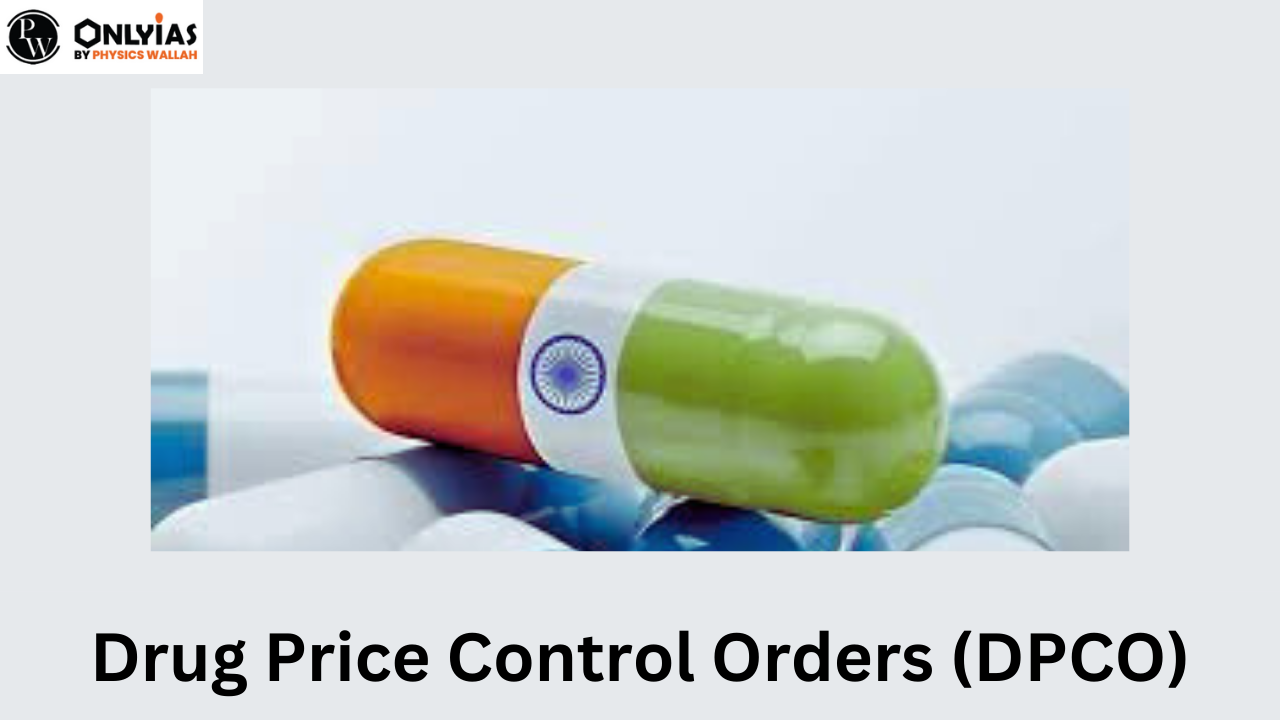![]() Ananya Gupta
Ananya Gupta
![]() August 31, 2023 04:45
August 31, 2023 04:45
![]() 3371
3371
![]() 0
0
DPCO full form is Drug Price Control Order. It is a regulatory framework issued under the Essential Commodities Act in India. DPCO empowers the government to control and regulate pharmaceutical product prices, ensuring accessibility and affordability of essential medicines.

The Drug Price Control Order (DPCO) is a regulatory framework implemented by various countries, including India, to control and regulate the prices of essential medicines. The primary objective of the DPCO is to make essential medications affordable and accessible to the general public, especially in countries where healthcare costs can be a significant burden on individuals and the healthcare system.
In the context of India, the DPCO is administered by the National Pharmaceutical Pricing Authority (NPPA), which is an organization under the Ministry of Chemicals and Fertilizers. The NPPA is responsible for regulating and controlling the prices of pharmaceutical products in order to ensure their availability at reasonable prices and to prevent the exploitation of consumers by pharmaceutical companies.
Under the DPCO, the government can regulate the prices of certain essential medicines by fixing their maximum selling prices. This is done to prevent pharmaceutical companies from charging exorbitant prices for critical drugs and to ensure that these drugs remain accessible to all sections of society. The list of drugs that fall under price control is generally determined based on their therapeutic importance and their impact on public health.
The DPCO framework may involve various methodologies for determining the prices of medicines, including cost-based pricing, market-based pricing, and more. It can also consider factors such as production costs, research and development expenses, and reasonable profit margins for pharmaceutical companies.
It’s worth noting that the specifics of the Drug Price Control Order can vary from country to country, and even within countries, the regulations might evolve over time. Therefore, if you are seeking information about the DPCO in a specific country or at a specific time, I recommend referring to the official government sources or regulatory bodies for the most accurate and up-to-date information.
DPCO stands for Drug Price Control Order. The Drug Price Control Order (DPCO) is a regulatory framework implemented by governments to control and regulate the prices of pharmaceutical products, particularly essential medicines. The main goal of the DPCO is to ensure that essential medications are affordable and accessible to the general population, especially those who might otherwise face financial constraints in accessing necessary healthcare.
| DPCO Full Form | |
|---|---|
| Full Form | Drug Price Control Order |
| Purpose | Regulatory framework to control and regulate the prices of pharmaceutical products. |
| Legal Basis | Issued under the Essential Commodities Act, 1955. |
| Objective | Ensure affordability and accessibility of essential medicines. |
| Authority | Ministry of Chemicals and Fertilizers, Government of India. |
The Drug Price Control Order (DPCO) comes into effect primarily to address several important issues related to the pricing of pharmaceutical products, especially essential medicines. Some of the key reasons why the DPCO is implemented include:
“Essential Medicines” refers to a curated list of medications that are deemed vital to addressing the healthcare needs of a population. This concept was introduced by the World Health Organization (WHO) in 1977, driven by the following crucial considerations:
Features that define “Essential Medicines” include:
The “Drug Price Control Order” (DPCO) underscores the need to streamline the usage of essential medicines. Governments can take several actions to achieve this goal:
The DPCO Amendments of 2019 brought significant changes to India’s pharmaceutical pricing and regulation landscape. Introduced by: Ministry of Chemicals and Fertilizers. These key facts are essential for IAS exam preparation:
The DPCO is issued under the provisions of the Essential Commodities Act, which gives the government the authority to regulate and control the prices of essential medicines and crucial bulk drugs that are important for public health. This regulatory framework allows the government to ensure that these medications are available to the public at reasonable prices and that pharmaceutical companies do not exploit consumers by charging excessively high prices.
The DPCO has a significant history, with its origins dating back to the 1970s when the government first introduced restrictions on the profits of pharmaceutical companies. This was a pivotal step in controlling healthcare costs and making essential medications more accessible to the general population.
The DPCO covers a range of aspects, including the process of fixing and revising drug prices, the procedures for implementation, the penalties and punishments for non-compliance, and more. It plays a crucial role in balancing the interests of the pharmaceutical industry with public health concerns, ensuring that vital medications remain affordable and available to all.
| Related Links | |
|---|---|
| PIL Full Form | GATT Full Form |
| TRAI Full Form | OMO Full Form |
<div class="new-fform">
</div>

Latest Comments